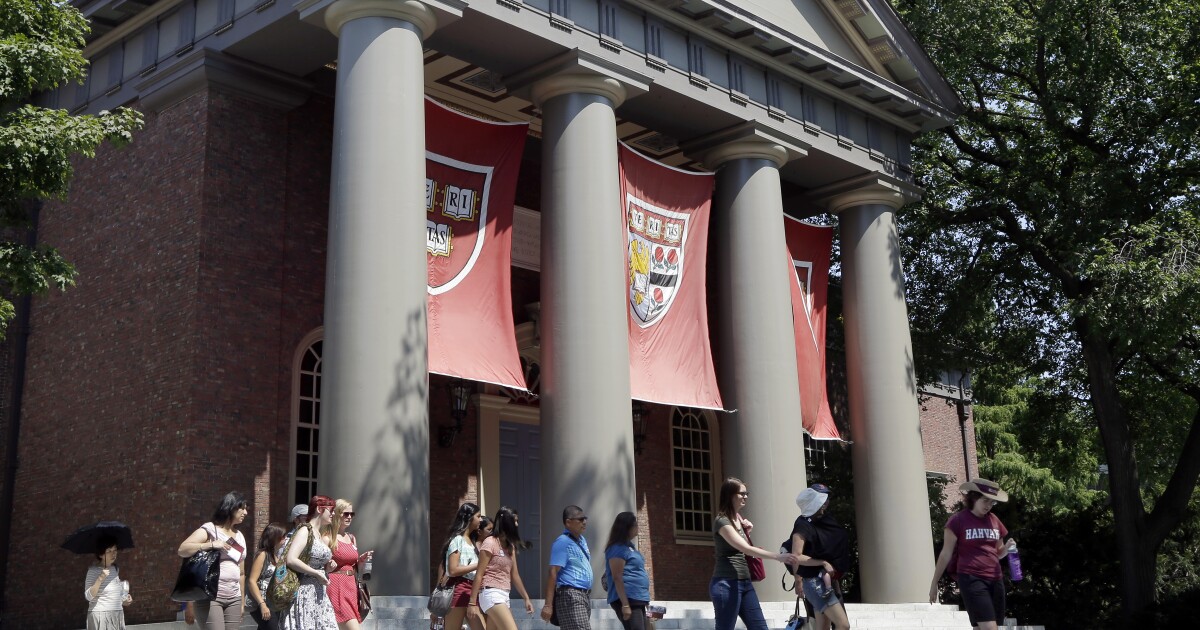

Lawyers filed a civil rights complaint Monday against Harvard, claiming the college’s legacy admissions “systematically disadvantage applicants of color.”
In the wake of the Supreme Court‘s move to end race-based admissions processes in two cases, one against Harvard and another against the University of North Carolina, Boston-area activists filed the complaint with the Department of Education’s Office for Civil Rights.
FIVE SUPREME COURT CASES TO WATCH WHEN JUSTICES RETURN FROM SUMMER RECESS
They argue affirmative action was a counter to legacy admissions
The lawsuit, filed by Lawyers for Civil Rights on behalf of the Chica Project, the African Community Economic Development of New England, and the Greater Boston Latino Network, alleges Harvard’s special consideration of applicants whose family members went to the school or have donated to it is tantamount to a racial consideration.
The complaint is asking the OCR to conduct a federal investigation into legacy practices and declare them illegal.
“Harvard College grants special preference in its admissions process to hundreds of mostly white students — not because of anything they have accomplished, but rather solely because of who their relatives are,” the complaint states.
According to the lawsuit, nearly 70% of applicants claiming legacy ties are white and applicants with those ties are nearly six times more likely to be admitted to the school. A similar number of applicants with donor relations are white but are nearly seven times more likely to be admitted.
The class of 2019 was about 28% legacy students.
“There should be no way to identify who your parents are in the college application process,” LCR executive director Ivan Espinoza-Madrigal said in a press release. “Why are we rewarding children for privileges and advantages accrued by prior generations? Your family’s last name and the size of your bank account are not a measure of merit, and should have no bearing on the college admissions process.”
The lawsuit also points to several institutions that have ended legacy considerations in applications and cites a working paper from the National Bureau of Economic Research to argue that more minority students would be accepted if legacy considerations did not exist and close to 25% of white students would not be accepted were it not for legacy admissions.
Last week, in response to the Supreme Court decision, President Joe Biden criticized legacy admissions as well, saying, they “expand privilege instead of opportunity.”
The lawsuit comes as Harvard doubled down on its pursuit of diversity-oriented admissions, despite the Supreme Court ruling.
Harvard’s response to the opinion focused heavily on one line from Chief Justice John Roberts’s opinion stating, “Nothing in this opinion should be construed as prohibiting universities from considering an applicant’s discussion of how race affected his or her life, be it through discrimination, inspiration, or otherwise.”
CLICK HERE TO READ MORE FROM THE WASHINGTON EXAMINER
“We will certainly comply with the Court’s decision,” the school’s response stated.
Harvard declined to comment on the complaint. LCR did not respond to a request for comment from the Washington Examiner.




